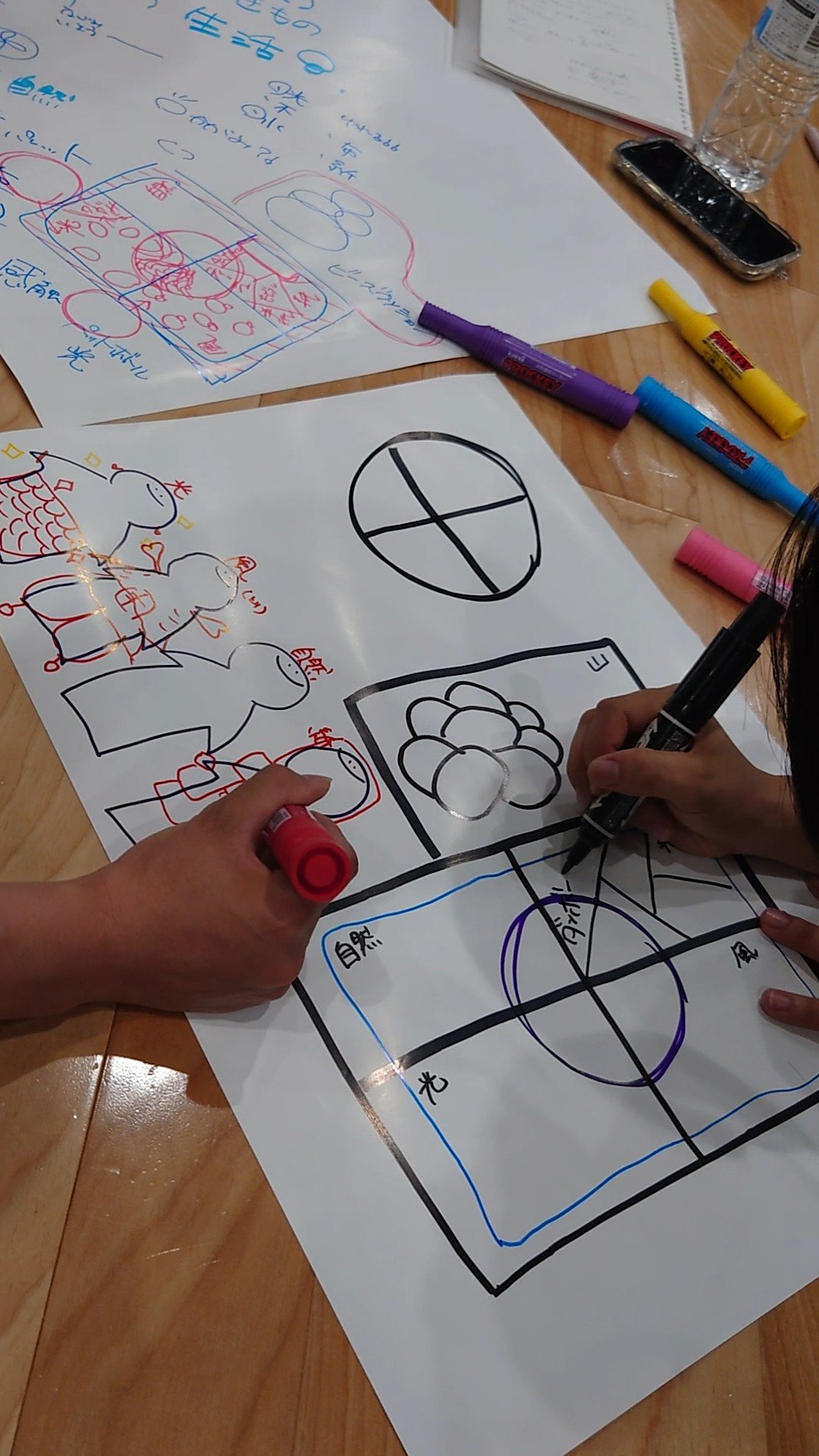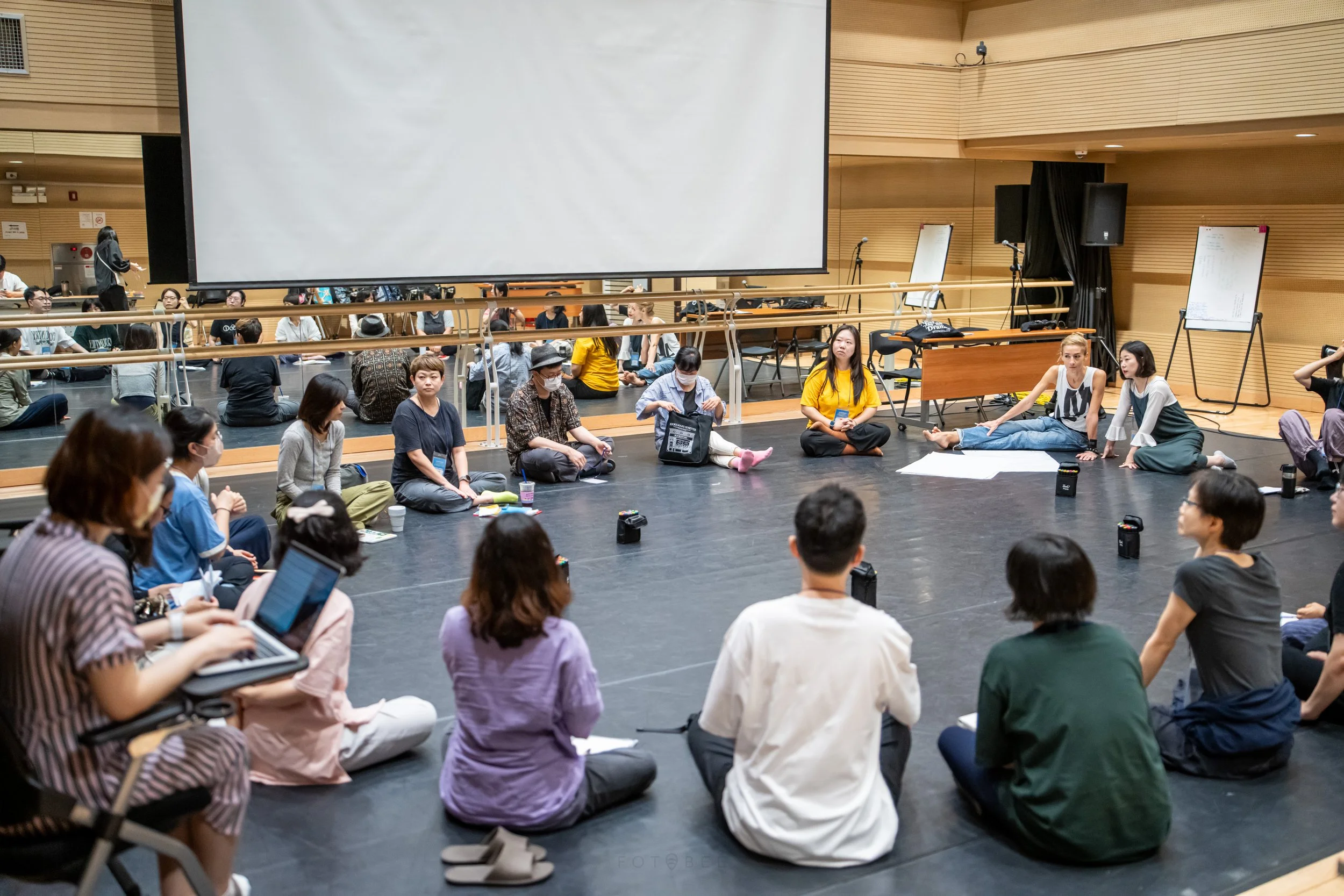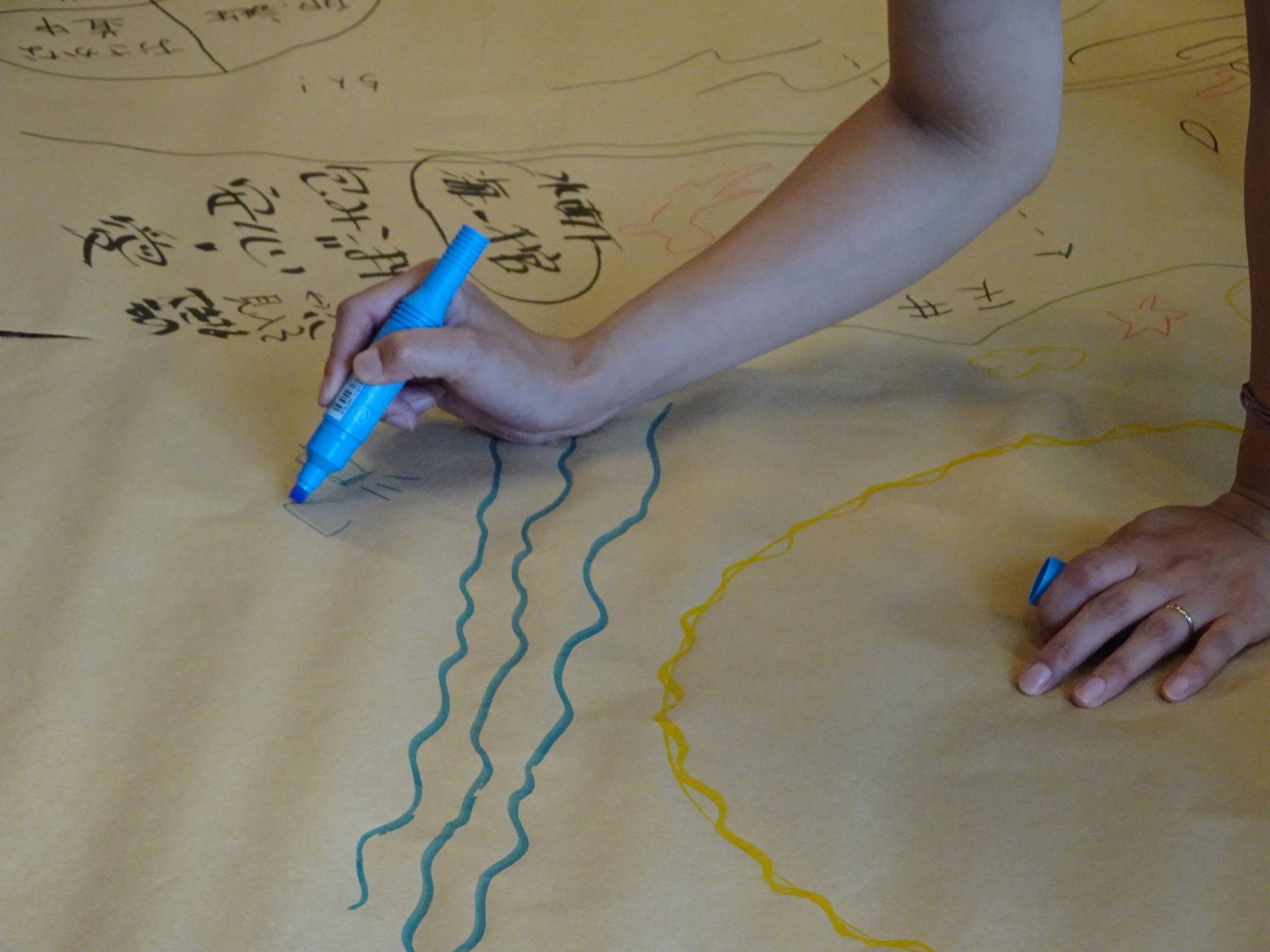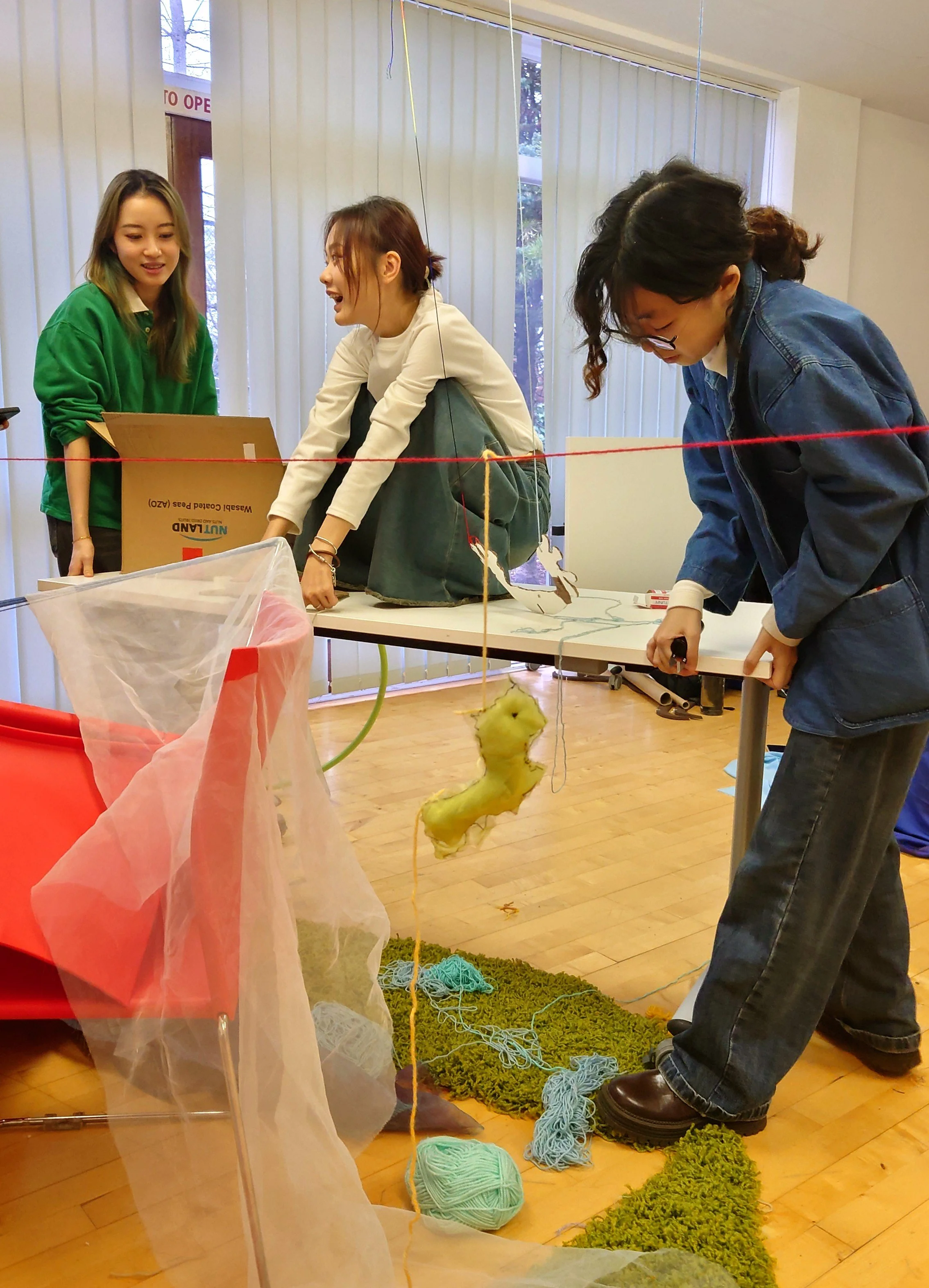Fostering Creative Dialogue AND critical thinking: Sharing My Practice and Research Internationally
My practice is committed to developing transdisciplinary artistic methods that are attuned to the perception of babies and young children with diverse developmental profiles, fostering experiences of commonality, inclusiveness, and empowerment through immersion, choreography, and embodied practices.
A key aspect of my work is challenging the pervasive ableism and ageism in the performing arts by rethinking conventional structures of engagement, perception, and participation. My practice seeks to create equitable artistic spaces that honor diverse modes of attention, embodiment, and expression.
I am passionate about sharing my knowledge and artistic practices worldwide, through lectures, workshops, labs, and mentorship. My work connects theory and practice, aiming to inspire and empower diverse groups of practitioners. Over the years, I’ve had the privilege of collaborating with renowned international networks, including the International Performing Arts for Youth (IPAY) and the International Association of Theatre for Children and Young People (ASSITEJ). Through these collaborations, as well as at numerous festivals and professional programs, I have introduced my approach to a wide array of artists and educators. My teaching extends across continents, reaching countries and regions where choreographic practices for babies and children with diverse developmental profiles were previously unexplored. I am proud to have established long-term collaborations in these regions, fostering new pathways for creativity and inclusion in performing arts for young audiences.
Fratz Festival, Berlin 2024 (Photo D. Beecroft)
Assitej International Summer Festival, 2023, Seoul, Korea (photo: ASSITEJI Fotobee)
Assitej International Summer Festival, 2024, Seoul, Korea (photo: ASSITEJI Fotobee)
Global reach
SWEDEN, NORWAY, DENMARK, FINLAND, GREENLAND, ICELAND, SWITZERLAND, ENGLAND, GERMANY, SPAIN, SCOTLAND, POLAND, BELGIUM, IRELAND, HUNGARY, LITHUANIA, LATVIA, CROATIA, BOSNIA, SERBIA, MONTENEGRO, TURKEY; CHINA, INDIA, JAPAN, HONG KONG, TAIWAN, SINGAPORE, MACAO; ARGENTINA, BRAZIL, USA; SOUTH AFRICA
Lectures
In my lectures, I introduce the key concepts and principles shaping my artistic practice and performance-making for children with diverse developmental profiles and/or neurotypical babies, explored from both theoretical and practical perspectives.
These concepts include understanding the audience—its nature, diversity, and specific needs—as well as the political dimensions of childhood. The lectures delve into attentional modalities and modes of engagement, the role of immersion in performance, and the significance of sensory immediacy and multisensory perception. I also examine movement as a form of expression, affective experience, and kinesthetic awareness, highlighting embodied perception within the context of performative practice. The concept of choreography as expanded practice is a central focus, alongside the transformative power of extended duration and durational performance. I address stage and costume design, while also discussing the ecological ethos and interrelationality inherent in performance-making. Lastly, I reflect on the underlying intention of my work, considering its artistic, social, and political dimensions. The lecture includes a brief overview of recent research in infant and child development, focusing on areas such as attention and perception, and provides context for how these scientific findings inform and influence my practice. For those interested in deepening their understanding of the theoretical and practical aspects of this field, I offer a curated selection of relevant literature and references.
The focus of the lectures is adapted according to the interests of the participants, whether in performing arts, stage design, or a general approach to the practice, ensuring that the content is relevant and tailored to the specific needs of the target audience.
Klaipeda, Lithuania
Workshops
Workshop for Artists
The workshop aims to provide practical knowledge on creating performances for children with diverse developmental profiles and/or neurotypical babies up to 24 months, rooted in my extensive artistic and academic research. Participants will engage in an intense creative process based on the core principles of my practice, while fostering dialogue, exchange, critical thinking, and experimentation. This workshop encourages practitioners to rethink formats and methods in the field, inspiring and empowering them to create artistic experiences that honor the unique nature of this audience. By the end of the workshop, participants will gain valuable knowledge and practical experience for creating immersive performances, which they can apply in future projects—whether for funding applications, collaborations, or further professional development. Participants will also be provided with additional reading materials to deepen their understanding and continue exploring the concepts introduced.
The workshop consists of four segments: Lecture and Discussion; Practical Insights; Creative Devising and Practical Application; Sharing and Refection. Lecture and Discussion segment concerns the introduction the key concepts and principles shaping my artistic practice and performance-making, explored from both theoretical and practical perspectives. Practical Insights provides practical guidance on staging and performing immersive works for this target group and their accompanying adults. It covers key aspects of audience communication, fundamental engagement principles, and essential performing strategies. Creative Devising and Practical Application engages participants in a creative exploration process, experimenting with the concepts in practice. Sharing and Refection guides participants through a structured creative process, from conceptualizing an idea to developing and refining performance material. Through group discussions, exploration, improvisation, and creative collaboration, participants define their artistic intentions, frame their audience, discuss methodologies, experiment with dramaturgical structures, and engage in content development. Regular sharing sessions foster critical reflection, allowing for dialogue on artistic choices, language, and framing. The Sharing and Reflection segment comprises the presentation of participants’ creative processes and performance materials, including reflections and Q&A. The ideal duration of the workshop is 5–8 days, as this time-frame allows for a deeper engagement with the concepts, thorough experimentation, and meaningful creative development.
Upon the completion of the workshop, participants will have:
Acquired practical knowledge in creating immersive performances for children with diverse developmental profiles. The extent of progress will depend on group dynamics, individual capacities, and engagement, with the workshop providing essential context, guidance, and inspiration to deepen and refine these concepts.
Gained a strong understanding of key artistic principles and strategies for engaging this audience effectively.
Explored methods of audience communication, performative interaction, and attentional strategies that enhance immersion and participation.
Acquired valuable insights into the creative process, from conceptualization to scene development, fostering a structured approach to devising performances.
Gained inspiration, tools, and practical frameworks for initiating future projects, including funding applications, interdisciplinary collaborations, and further professional development.
Taiwan, Kaohsiung 2024
Workshop for Kindergarten Teachers
This workshop fosters a space for exchange, exploration, and critical thinking at the intersection of artistic and educational contexts, focusing on movement based experiences with kindergarten children—both neurotypical and those with diverse developmental profiles.
It begins by providing insights into artistic practices and methods developed through my extensive artistic career and academic research in creating immersive performances for this age group. Participants are then invited to reflect on these approaches, engage in dialogue about the commonalities and differences between artistic and educational contexts, and practically explore key aspects of the practice. The workshop fosters a bi-directional process of learning and exchange, where artistic and educational perspectives inform and enrich one another, while insisting on the importance of open-ended experience, affective exchange, and freedom of expression and choice in movement and dance exploration. The approach is prioritizing exploration and sensation over form, and highlights the value of individual experience above collective norms.
Rather than offering prescribed methods or solutions, it encourages a dynamic, collaborative approach to devising possible ways of implementation of the approaches within participants’ professional settings. Acknowledging the contrasts between artistic and educational contexts—such as the greater freedom of artistic exploration versus the structural limitations and goal orientated activities often inherent in educational systems—the workshop creates space for critical reflection, adaptation, knowledge exchange, and the development of creative approaches. Ultimately, the workshop seeks to empower and inspire participants by bridging these distinct contexts, fostering dialogue across differing perspectives, opening new perspectives and encouraging new possibilities within their practice. Proposed approach is prioritizing exploration over form and highlights the value of individual experience above collective norms.
Japan Union of Theatrical Companies for Children and Young People, Tokyo, Japan, February 2020
Stavanger, Norway
The Artground Singapore
Starcatchers, Edinburgh, UK, 2019
Assitej South Africa, Cape Town
University of Stavanger, Norway, 2025
Assitej South Africa, Cape Town 2023
Art Station Foundation, Poznan, Poland





























































